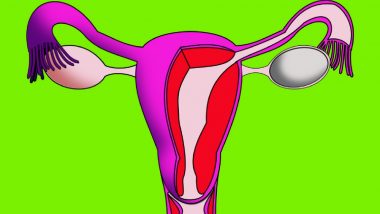Mycoplasma genitalium (MG) is a rare but prevalent sexually transmitted infection, the incidences of which is increasing day by day. Experts believe that it could soon become the next superbug. Mycoplasma genitalium (MG) is common in both men and women and may even cause infertility in women.
Considering the threat of this STI almost replicating an epidemic, the awareness regarding this STI is extremely low. However, the British Association of Sexual Health and HIV (BASHH) has laid down the guidelines for diagnosis and treatment of Mycoplasma genitalium.
What is Mycoplasma Genitalium (MG)?
The infection was identified since the 1980s but was only discovered as a sexually-transmitted infection (STI) in the year 2015. A study found a link between the bacteria and sex and concluded that it affected equally to both men and women and majorly associated with unsafe sex and an increased number of sexual partners.
Mycoplasmas extremely tiny, microscopic free-living micro-organisms. On men, this infection may cause inflammation of the urethra. In women, on the other hand, causes inflammation of the reproductive organs like the womb and fallopian tubes.
The symptoms
The most complicated part of this infection that the symptoms are rare and come into recognition much later. According to the study conducted, 'The majority of men and over half of women with MG did not report any STI symptoms in the past month. In men, there were no associations between reported STI symptoms and MG positivity. Women who tested positive for MG were more likely to report STI symptoms in the past month than those who tested negative, and this association remained after adjusting for CT, GC or HR-HPV co-infection. When looking at specific symptoms, women with MG were significantly more likely to report having experienced bleeding after sex.'
Discharge amongst men and women with dysuria( painful urination) are some other symptoms of this infection. Its symptoms are quite similar to another STI Chlamydia and many times men and women almost show no signs.
Diagnosis and prevention:
MG can be diagnosed by a 'nucleic acid amplification test (NAAT)'. However, since it diagnosed quite recently the tests aren't available in most clinics. Its prevention is quite comfortable and safe. Condoms give the best protection from MC virus and even other STIs.
Treatment:
MG can be treated with the help of antibiotics like 'doxycycline, followed by a course of azithromycin' and 'macrolides'. The study and other experts, however, suggest a few concerns that the infection is reportedly developing resistance to this.
According to the study, "Eradication rates of M. genitalium following treatment with macrolides are decreasing globally
14 and rates of resistance are 30-100%. Macrolide resistance in the UK is estimated at around 40%."
(References: 2018 BASHH UK national guideline for the 2 management of infection with Mycoplasma genitalium/ Epidemiology of Mycoplasma genitalium in British men and women aged 16–44 years: evidence from the third National Survey of Sexual Attitudes and Lifestyles (Natsal-3) )
(The above story first appeared on LatestLY on Jul 11, 2018 06:49 PM IST. For more news and updates on politics, world, sports, entertainment and lifestyle, log on to our website latestly.com).













 Quickly
Quickly


